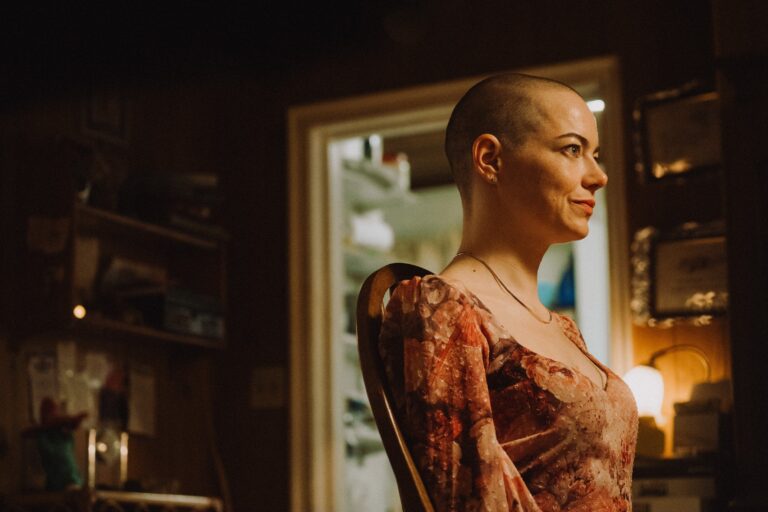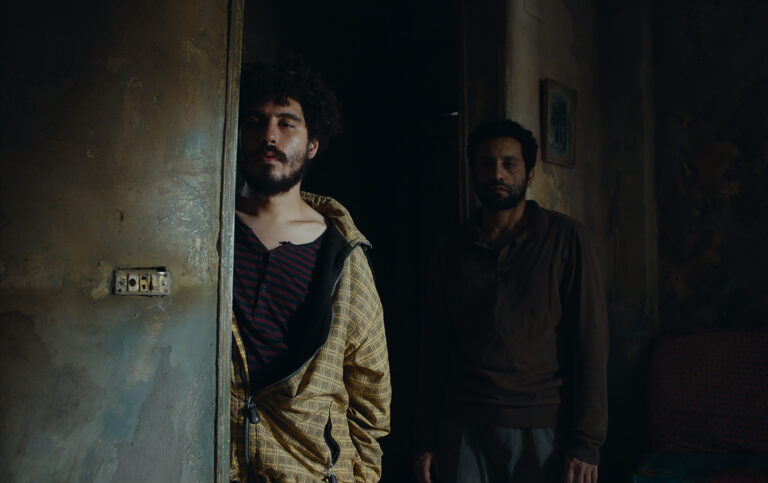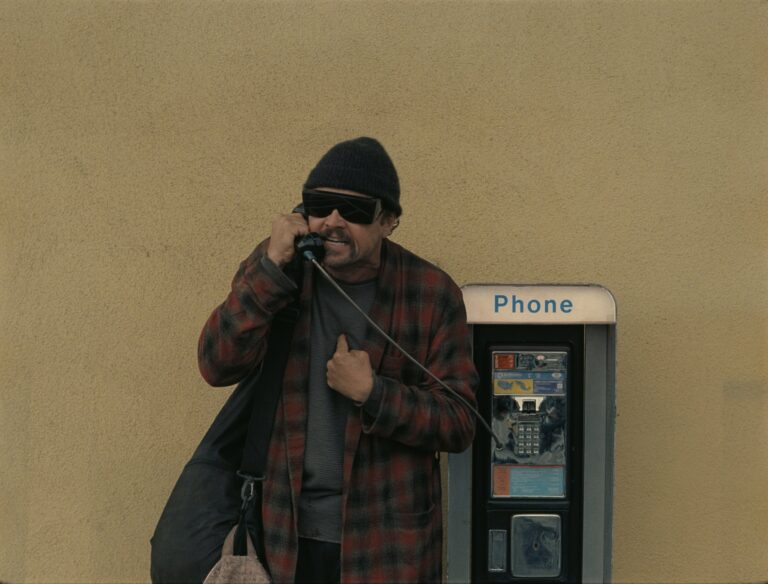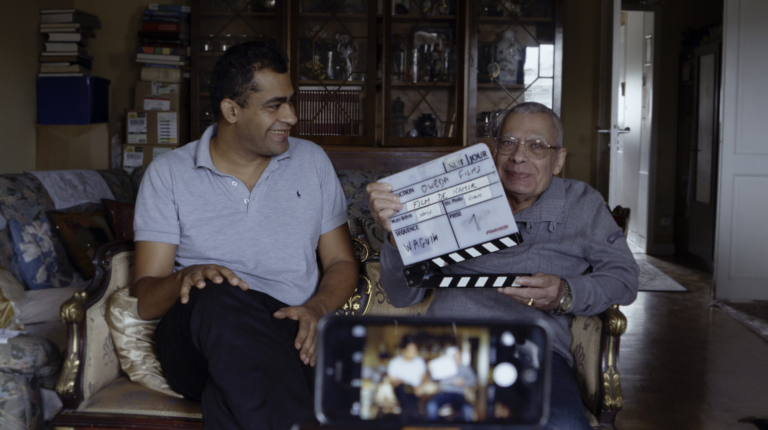My Father’s Scent: Ahmed Malek Steals the Show in the Intimate, Dreamy Drama
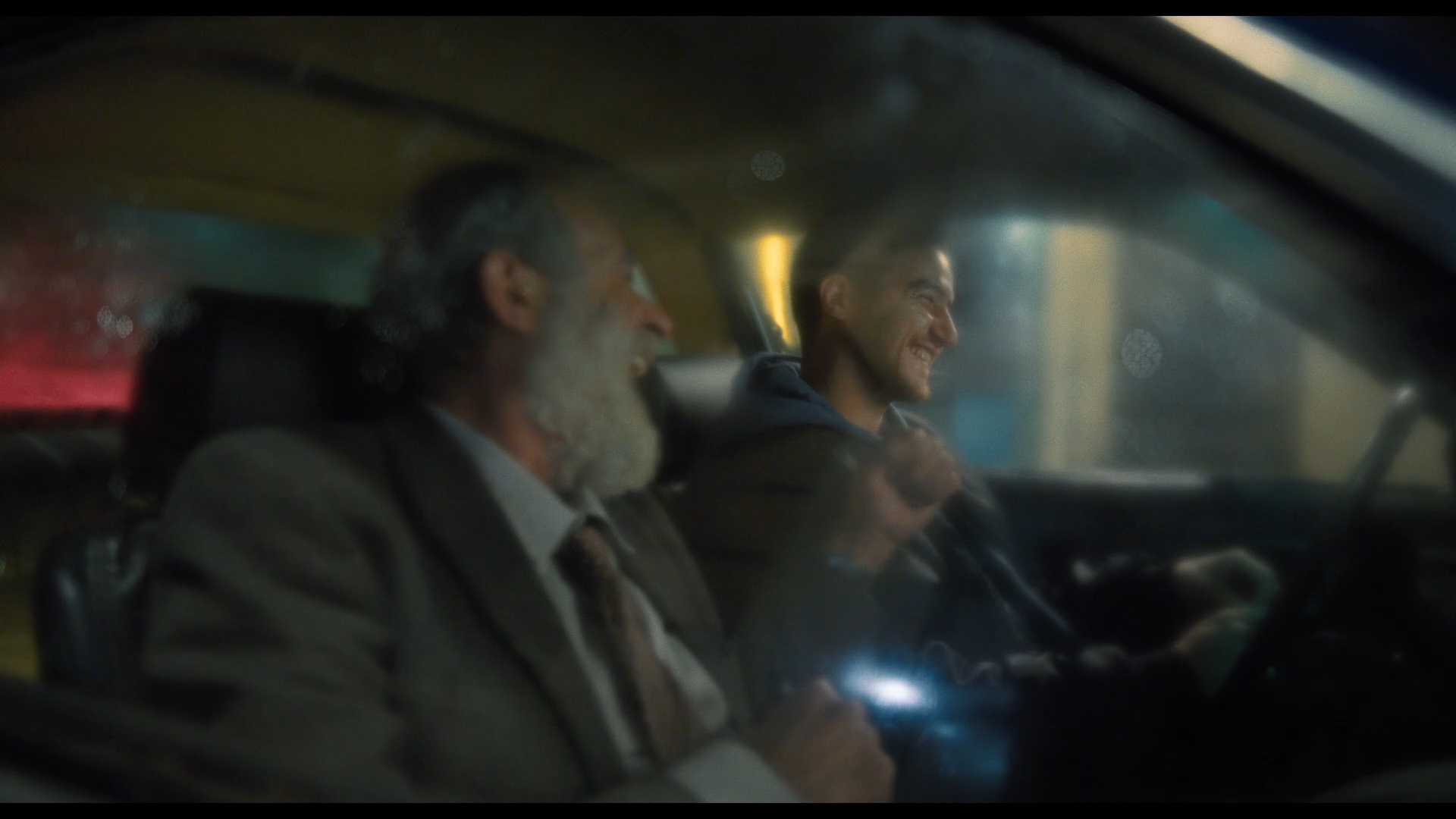
By
‘My Father’s Scent’ starts with a death. An old man with terminal cancer has been in a coma for six months and has just been released from the hospital (or, as one “high” beggar puts it in one scene, he came back from the other side). The old man then spends his first day out of the hospital with his younger, drug addict son, only to die the next day.
The older brother (Ali, played by Abed Anani), violently and insensitively, blames the younger one (Farouk, our main character, played by Ahmed Malek). Malek’s expressions, actions, and reactions might convince you that the suspicion isn’t entirely unfounded. Yet, even if Farouk weren’t under suspicion, he remains the last person to have seen the deceased. This prologue is revealed to be a flashforward, as the film then unfolds the events of that final night between Farouk and his father, set against Alexandria’s beautiful and dreamy scenery. Accompanied by a soundtrack of classic Egyptian songs and an ambient electronic score, the film evokes a nostalgic atmosphere.
The first thing that jumped out at me while watching ‘My Father’s Scent’ is how fed-up and openly hostile everyone is. From the two brothers to the father, everyone just responds aggressively to each other, even when joking and being sarcastic. Farouk breaks TWO mirrors in two different scenes. Everyone has obviously put up with one another’s bullshit for so long and say so to themselves.
It almost makes up for all the repressed emotions and all the things left unsaid in many of Egypt’s “alternative” cinema. I’ve long held an opinion that the sort of “long take heavy, light on dialogue” Egyptian Festival films don’t always represent Egypt and Egyptians. Egyptians are very talkative; they repress their emotions with sarcasm more than with a poker face. I’ve even told some aspiring filmmakers that they need to watch less Tarkovsky and more John Cassavetes.
So, I gladly say it, ‘My Father’s Scent’ feels like a John Cassavetes film, or rather, a good impression of it, a good enough impression for a first-time director.
The setting is limited, both spatially and temporally (to the point that you get very familiar with the main apartment it mostly takes place in, you know the geography and the decorations, and miss the place once the film ends, which is a very good sign), the emotions are anything but limited, as the film attempts all the emotions under the sun (angry, reflective, peaceful, fun, quirky, somber, cathartic), It boils down years or decades of backstories, feelings or memories to one prolonged dialogue scene after another.
This mostly works. the film has enough rawness and insight that makes those sorts of reflective, dialogue heavy movies, work. Even when it commits the sin that often comes with those ambitions: the dialogue sometimes feels forced and unnatural. All dialogue in all fiction is ultimately a tool for the writer to convey information, but the best writers make it feel organic to the character in this specific situation.
But the film luckily powers through its exposition and rough emotional turns, so that in the end every character will have a unique voice. That is due to the film’s strong atmosphere and Mohammed Siam’s solid and heartfelt direction, and obviously the actors. Malek is at his best here, his method acting makes his character the most well-rounded. Palestinian Veteran Kamal El-Pasha brings a lot of heart and charisma to his role. Even when his dialogue is a little worse and he neither looks nor feels as sickly and dying as the dialogue insists, he is. Mayan El-Sayed is surprising here in maybe her best performance.
The film is subtly, organically, and interestingly subversive in many aspects (with organically and subtly being the key words here). This is the most sympathetic portrayal of drug use in any Egyptian film, perhaps comparable to Naguib Mahfouz’s Chatter on the Nile, but this feels even more vulnerable and understanding.
Dina Maher’s character is also an interesting addition that plays into the film’s themes of oppression and self-presentation (at least in the early cut we watched). Also, the finale has a character decision that is an interesting portrayal of a controversial topic, which the film presents without any judgement.
This delicate sensibility, this sympathy and understanding, are the signs of a true artist, more than technical accomplishments or polished screenwriting.
It’s a very open film about emotional openness, a film against judging others, a film that finds a lot of sympathy and grace between its cruel characters, rough edges, and melancholically empty version of Alexandria.
‘My Father’s Scent’ is a film about memory and pain, and their intersection. A scent is the final remanence of a thing or a person, the last faint proof that it even existed, and the final fuel for a memory. Pain has many shapes and forms, many ways to ease and suppress and ignore. Pain can be a reminder as much as a scent can, but it can also be an obstacle and a crutch.
It’s a film that understands all the ways that people could try to numb, or even end, all this pain.



